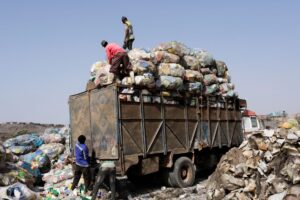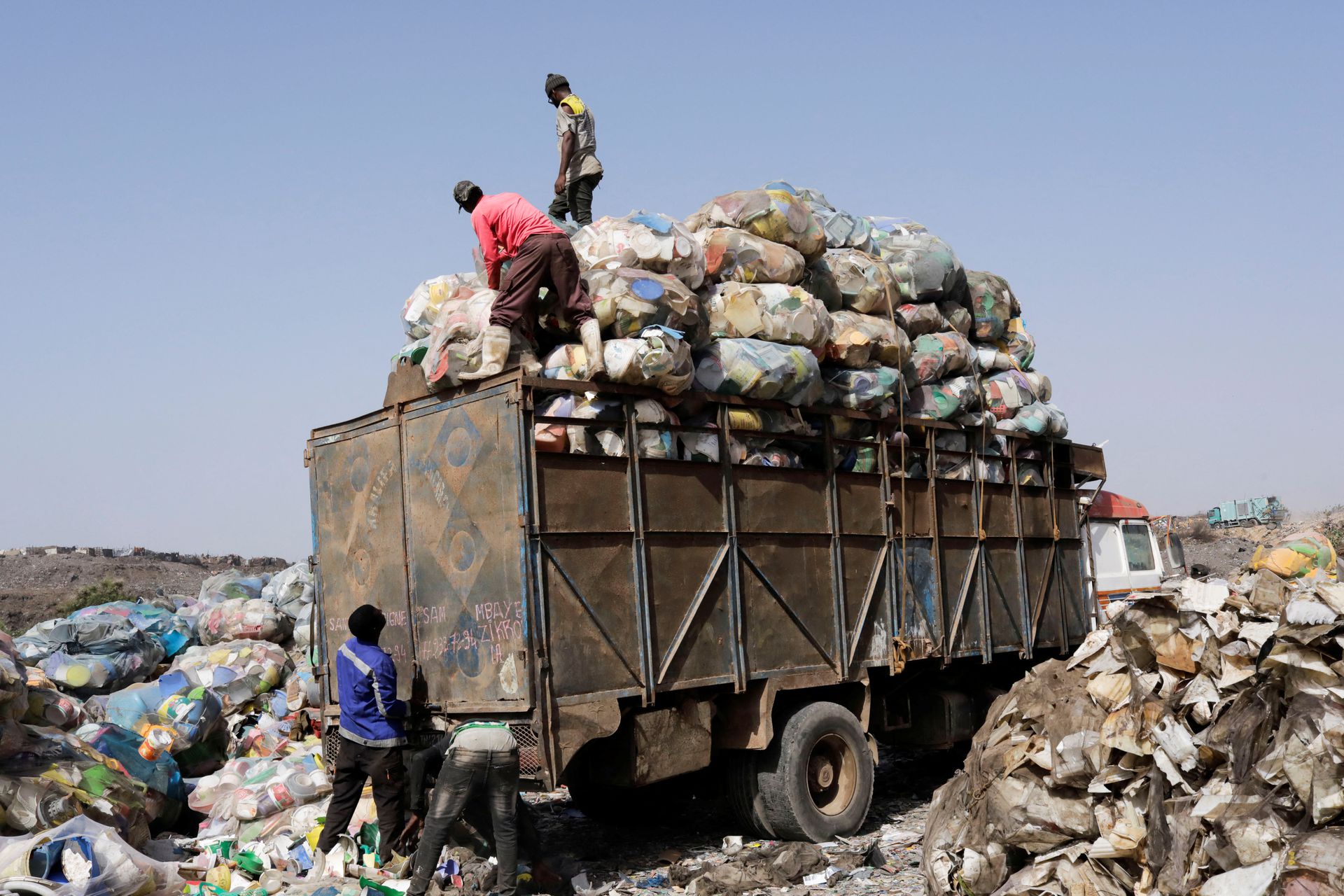

Baye Dame Ndiaye expertly sifts through pungent heaps of rubbish dumped at the landfill where he grew up outside the Senegalese capital Dakar, setting plastic aside for recycling companies and bits of cardboard to feed his sheep.
Hundreds of informal recyclers gather each day as the sun rises over the trash mountains of Mbeubeuss, Dakar’s main dump site and one of West Africa’s largest, eking a living from scraps of iron, aluminium and plastic.
The trade has continued to thrive despite a 2020 ban on single-use plastic and government efforts to formalise waste collection.
“Never in my life did I think I would come and work here… but I enjoy it,” said Ndiaye, 32, who has taken several odd jobs since he dropped out of high school.
Ndiaye is part of a team of 120 that picks up around three tonnes of plastic per day. It is chopped into smaller pieces, washed and sold to a middle-man for 25 CFA francs (4 cents) per kilogramme.
Companies buy that plastic for between 50 and 75 CFA francs (8 and 13 cents) per kilogramme and then sell it to plastic producers in Dakar such as SIMPA.
“Recycled material is more affordable than virgin material,” said SIMPA deputy director Khalil Hawili, noting that recycled products were bestsellers.
At Mbeubeuss, cows rummage casually between the recyclers, unbothered by toxic fumes wafting from burning piles of rubbish that won this section of the landfill the nickname “Yemen” in reference to images of the war.
Ndiaye’s mother Binta Diouf, a dried fish seller, said she would have preferred to see her son finish school and leave the landfill next to which the family relocated after floods damaged their house in 2001.
“Since we moved here we noticed more respiratory illness,” she told Reuters, recalling her initial struggle with the smoke and smells.
But in seven years of work at Mbeubeuss, Ndiaye has become a breadwinner and set enough money aside to breed sheep on the roof of his home.
He bulks up their feed with cardboard from the dump, where cattle herders also find food scraps for their animals.
“Being next to the landfill is an advantage,” said Ndiaye. “Others only see trash… but it is more than that.”
($1 = 606.5000 CFA francs)
Reporting by Ngouda Dione; Writing by Sofia Christensen
(Reuters)














